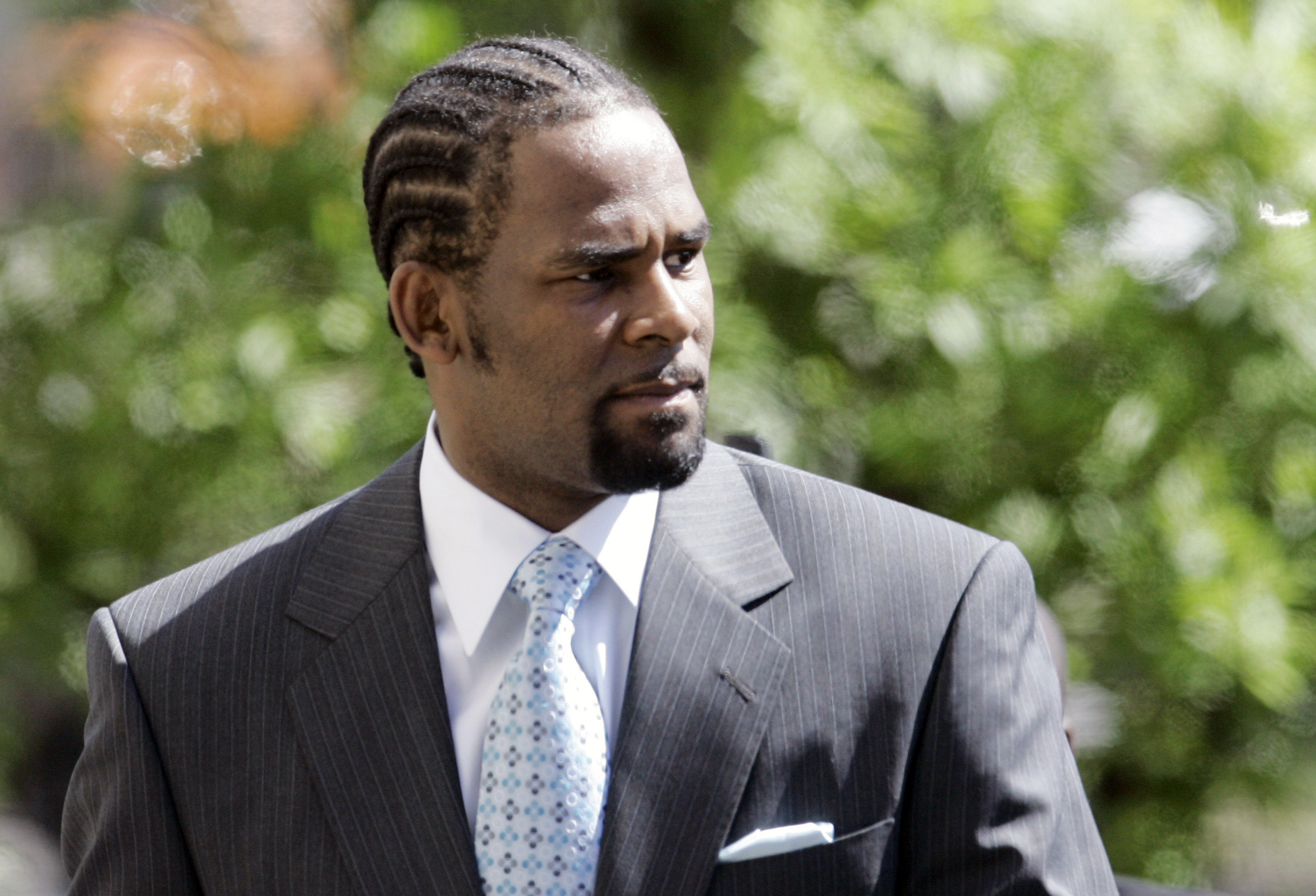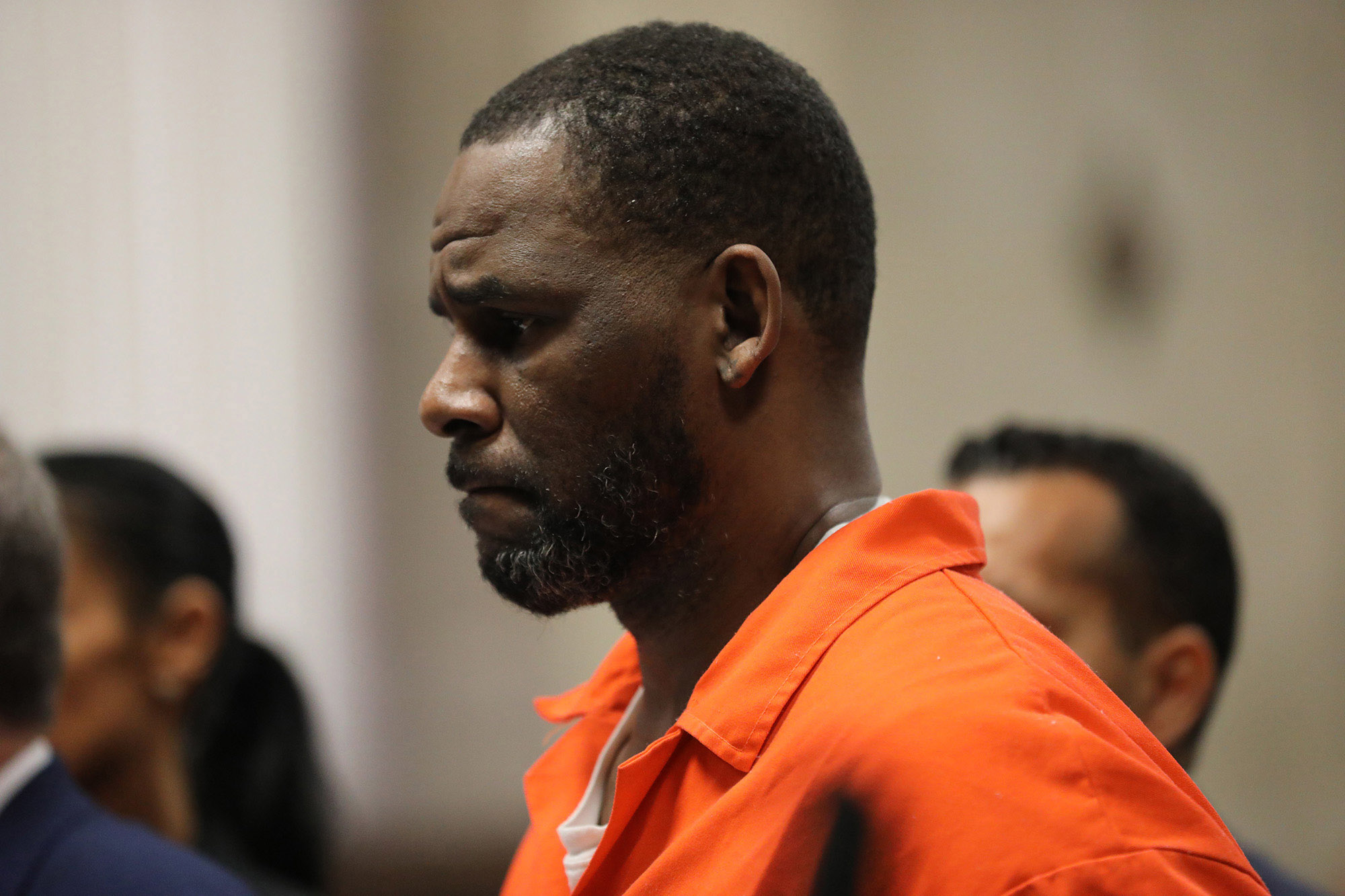R&B star R. Kelly was sentenced to 30 years in prison Wednesday for using his superstardom to subject young fans — some just children — to systematic sexual abuse.
The singer and songwriter, 55, was convicted of racketeering and sex trafficking last year at a trial that gave voice to accusers who had once wondered if their stories were being ignored because they were Black women.
U.S. District Judge Ann Donnelly imposed the sentence after hearing from several survivors who attested to how Kelly’s exploitation reverberated across their lives.
Get top local stories in Southern California delivered to you every morning. >Sign up for NBC LA's News Headlines newsletter.
Through tears and anger, R. Kelly’s accusers told a court Wednesday he had preyed on them and misled his fans, while the fallen R&B star awaited sentencing on his federal sex trafficking conviction.
“You made me do things that broke my spirit. I literally wished I would die because of how low you made me feel,” one woman told the Grammy-winning, multiplatinum-selling singer. She said she was forever traumatized by her teenage experience with him.
“Do you remember that?” she asked.
A Brooklyn federal court jury last fall found Kelly, 55, guilty of racketeering and other counts at a trial that was seen as a signature moment in the #MeToo movement.
Kelly manipulated millions of fans into believing he was someone other than the man the jury saw, another accuser told the court.
Victims “have sought to be heard and acknowledged,” she said. “We are no longer the preyed-on individuals we once were.”
A third woman, sobbing and sniffling as she spoke, said Kelly’s conviction renewed her confidence in the legal system.
“I once lost hope,” she said, addressing the court and prosecutors, “but you restored my faith.”
The woman said Kelly victimized her after she went to a concert when she was 17.
“I was afraid, naive and didn’t know to handle the situation,” she said, so she didn’t speak up at the time.
“Silence,” she said, “is a very lonely place.”
Kelly kept his hands folded and eyes downcast as he listened. It wasn’t yet clear whether he would speak at the sentencing.
“He’s strong, and we are going to get through this,” defense lawyer Jennifer Bonjean said on her way into court. Whatever his sentence, Kelly is hopeful his conviction will be overturned on appeal, she said.
U.S. District Judge Ann Donnelly determined that federal guidelines allowed for a sentence of up to life in prison. Kelly’s lawyers sought 10 years or less.
They argued in court papers he should get a break in part because he “experienced a traumatic childhood involving severe, prolonged childhood sexual abuse, poverty, and violence.”
They added: “His victimization continued into adulthood where, because of his literacy deficiencies, the defendant has been repeatedly defrauded and financially abused, often by the people he paid to protect him.”
The hitmaker is known for work including the 1996 hit “I Believe I Can Fly” and the cult classic “Trapped in the Closet,” a multi-part tale of sexual betrayal and intrigue.
Allegations that Kelly abused young girls began circulating publicly in the 1990s. He was sued in 1997 by a woman who alleged sexual battery and sexual harassment while she was a minor, and he later faced criminal child pornography charges related to a different girl in Chicago. A jury there acquitted him in 2008, and he settled the lawsuit.
All the while, Kelly continued to sell millions of albums.
The jury convicted the hitmaker after hearing about how he used his entourage of managers and aides to meet girls and keep them obedient, an operation that prosecutors said amounted to a criminal enterprise.
Several accusers testified that Kelly subjected them to perverse and sadistic whims when they were underage.
Kelly, born Robert Sylvester Kelly, used his “fame, money and popularity” to systematically “prey upon children and young women for his own sexual gratification,” prosecutors wrote in their own filing earlier this month.
The accusers alleged they were ordered to sign nondisclosure forms and were subjected to threats and punishments such as violent spankings if they broke what one referred to as “Rob’s rules.”
Some said they believed the videotapes he shot of them having sex would be used against them if they exposed what was happening.
There was testimony Kelly gave several accusers herpes without disclosing he had an STD, coerced a teenage boy to join him for sex with a naked girl who emerged from underneath a boxing ring in his garage, and shot a shaming video of one victim showing her smearing feces on her face as punishment for breaking his rules.
Evidence also was presented about a fraudulent marriage scheme hatched to protect Kelly after he feared he had impregnated R&B phenom Aaliyah in 1994 when she was just 15. Witnesses said they were married in matching jogging suits using a license falsely listing her age as 18; he was 27 at the time.
Aaliyah worked with Kelly, who wrote and produced her 1994 debut album, “Age Ain’t Nothing But A Number.” She died in a plane crash in 2001 at age 22.
An earlier defense memo suggested prosecutors’ arguments for a higher sentence overreached by falsely claiming Kelly participated in the paying of a bribe to a government official in order to facilitate the illegal marriage.
Kelly’s lawyers also said it was wrong to assert he should get more time because he sexually abused one of his victims — referred to in court as “Jane” — after her parents innocently entrusted him to help her with her musical career.
“The record shows that Jane’s parents directed Jane to lie to the defendant about her age and then encouraged her to seduce him,” the papers say.
Kelly has been jailed without bail since in 2019. He's still facing child pornography and obstruction of justice charges in Chicago, where a trial is scheduled to begin Aug. 15. Kelly has denied any wrongdoing.
Following the sentencing, Kelly's attorney, Jennifer Bonjean, told the press they plan to appeal, adding that her client is fine following the sentencing, but that it was "obviously a hard day."
Meanwhile, U.S. Attorney Breon Peace called Kelly's decades-long sentence "a significant outcome" for R.Kelly's victims.
"Moments ago, R. Kelly was sentenced to 30 years in prison," Peace said. "This is a significant outcome for all the victims of R.Kelly and especially for the survivors who so bravely testified about the horrific and sadistic abuse they endured. R.Kelly is a predator and as a result of our prosecution, he'll serve a long jail sentence for his crimes. With the aid of his fame, his money, and most importantly his inner circle, R.Kelly preyed upon children and young women for his own sexual gratification for decades...He continued committing his crimes for almost 30 years and avoided punishment -- until today."
Breon went on to say that the sentence was a "victory for [the survivors], for justice and for future survivors of sexual assault. Victims of sexual violence must be heard, perpetrators must be held accountable , and our women and children must be protected. I hope this sentencing serves as its own testimony that it doesn't matter how powerful, rich or famous your abuser may be -- how small they may make you feel -- justice only hears the truth."
Homeland Security Investigations (HSI) Executive Associate Director Steve Francis shared similar sentiments, saying that "today's sentence is a victory that belongs to the victims."
Francis also described R.Kelly as a "prolific serial predator who utilized his status as a Grammy Award-winning household name with global recognition to inflict pain and anguish on so many victims."
"No matter how many hit songs he may have released, his legacy will not be remembered by that of his voice, but the voices of the brave women and men who came forward to reveal to the world the monster that R.Kelly truly is," Francis said.



